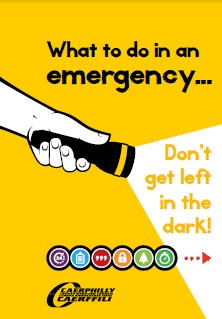Emergency planning
It is very unlikely that any of us will ever be caught up in an emergency or disaster. However, emergencies can happen and when they do, they have the potential to disrupt the community, sometimes with serious consequences.
The wide range of services the Council provides on a day-to-day basis, together with our expertise and local knowledge, means the Council is well placed to respond to unpredictable or unexpected events that may touch our lives at any time and in a number of different ways.
What we do
Emergency Planning aims to reduce the chances of emergencies happening and if they do, lessen their impact on our communities. We do this by:
- Planning: we assess which risks may affect our communities and develop plans to control and lessen their impact.
- Training and exercising: we undertake a programme of training and exercising for our staff and other agencies to make sure we work effectively together when needed.
- Liaison: we work closely with neighbouring local authorities, emergency services, utilities, voluntary and other appropriate organisations, which allow us to share information and ensure our plans and procedures fit together so we can provide a coordinated response to emergency incidents.
- Operational: a 24-hour Emergency Duty Officer system is provided allowing a timely response to major incidents.
What can you do?
Being prepared for a major emergency also means that you can deal more effectively with minor ones. By taking some simple steps you can reduce the impact of an emergency on your family and home.
This does not require any specialist knowledge, only a few moments of your time. The following booklet contains practical advice how you can help yourself and your family in the event of an emergency.
What to do in an emergency - Don't get left in the dark (PDF)
